Sustainable street furniture’s role in shaping a net zero world
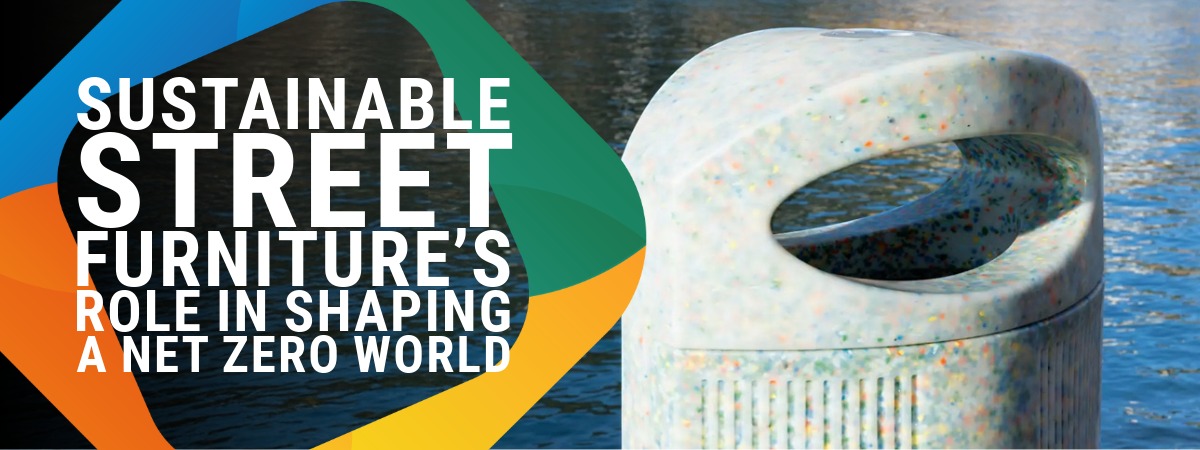
Well-designed outdoor spaces are key to the creation of healthier, biodiverse and more active communities, making them an important part of our net zero future. However, for any outdoor space to maximise its sustainability, in addition to evaluating the benefits possible through the uses that it facilitates or even encourages, the life cycle of the products used in its creation must also be assessed.
Hence why we have seen the rise of sustainable street furniture in recent years. Such products seek to offer architects, landscaping professionals and developers solutions that are manufactured in ways that reduce demand on Earth’s natural resources, particularly virgin raw materials and energy.
Sustainable products are also optimised for durability to ensure their lifespan is maximised. As a result, their embodied carbon will usually be lower given that they reduce the potential for frequent replacement, hence avoiding the premature need for what may be carbon-intensive processes for new manufacturing and installation over the product's lifetime.
Street furniture is also increasingly being produced with considerations of the circular economy at the core. That means products ranging from benches, seating, litter bins and bike racks to canopies, signage and planters are supported by documentation which evaluates the carbon emissions associated with the cycle of its design, manufacture, installation, maintenance, disassembly/removal and recycling.
By choosing street furniture products and systems which have a relatively low carbon footprint, the carbon emissions associated with the creation and maintenance of an outdoor space are significantly reduced. Hence why a number of the products and ranges within the Bailey Street Furniture Group (BSFG) portfolio are attracting ever stronger interest as the UK heads towards its net zero carbon by 2025 deadline.
Plastic as a sustainable choice
Whilst plastics produced from virgin raw materials – mainly oil – will have an initial high carbon cost, recycled plastic is a very different proposition. Initiatives which are using waste plastic, much of which as been generated in vast quantities for decades, help to reduce the issues associated with disposing of materials that could take hundreds or even thousands of years to biodegrade. This is in addition to the significant environmental nuisance they create over their extended lifetime.
Hence why choosing street furniture manufactured using recycled plastic can have important sustainability benefits as two of the BSFG ranges demonstrate. They have the longevity, low maintenance and durability benefits that plastic offers without the unpalatable raw material cost.
Giving new purpose to plastic waste from marine environments
One of the latest recycled plastic ranges introduced by BSFG within the Street Furniture Direct (SFD) portfolio is seating produced by Fabregas. This Spanish designer and manufacturer is internationally renowned for its environmentally sustainable products, but with its recently developed Eco-Ocean Series, BSFG can now offer seating composed of a thermoplastic polymer produced from recovered marine plastic waste.
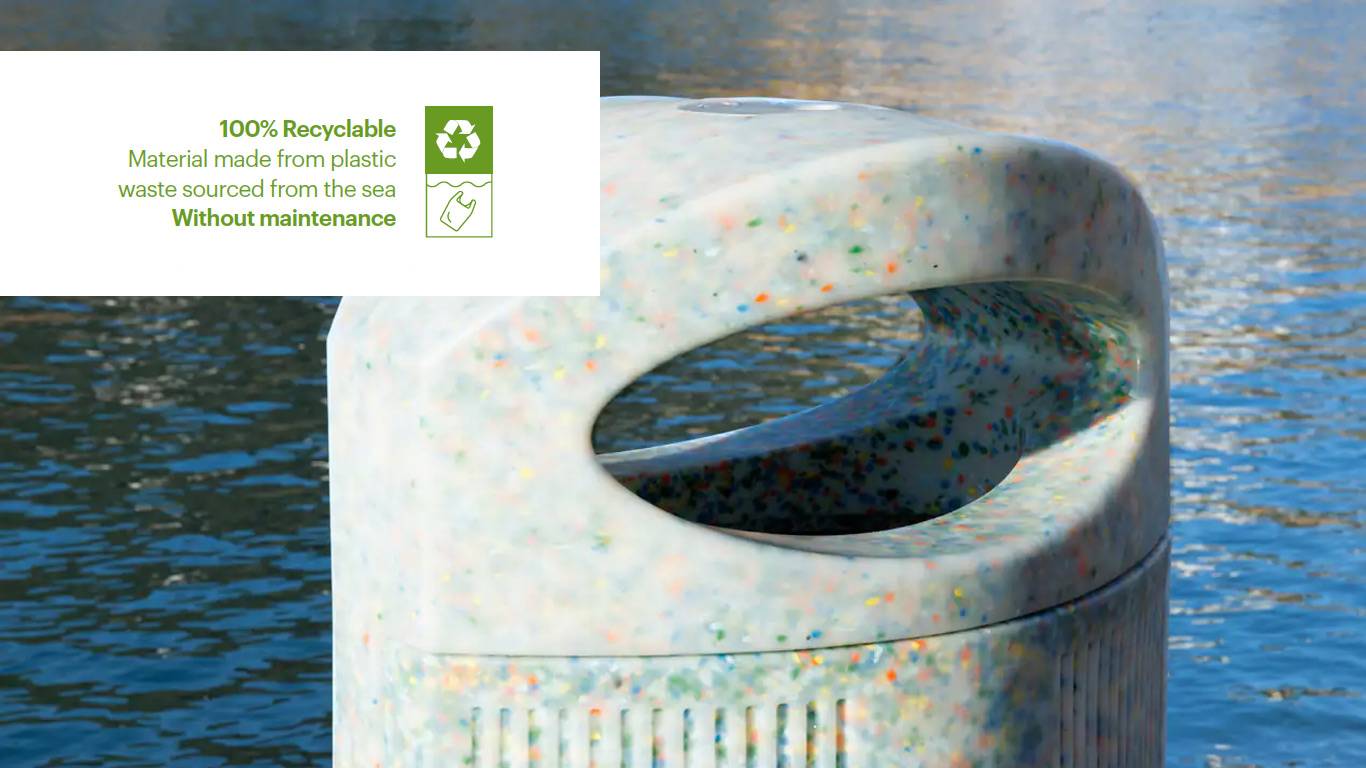
This helps to alleviate a major environmental problem by helping to clean up the oceans as the raw material is collected. The products created using this material, which include the Ibiza litter bin, offer a long lifespan and they can be 100% recycled again at the end of their life given the careful selection of the other components used, including fixings.
Ecocity by name, eco-city by nature
Another product range available from SFD which is also manufactured by Fabregas using recycled materials is the EcoCity collection. This offers a comprehensive selection of street furniture products, featuring both 100% recycled plastic and WPC (wood plastic composite) options.
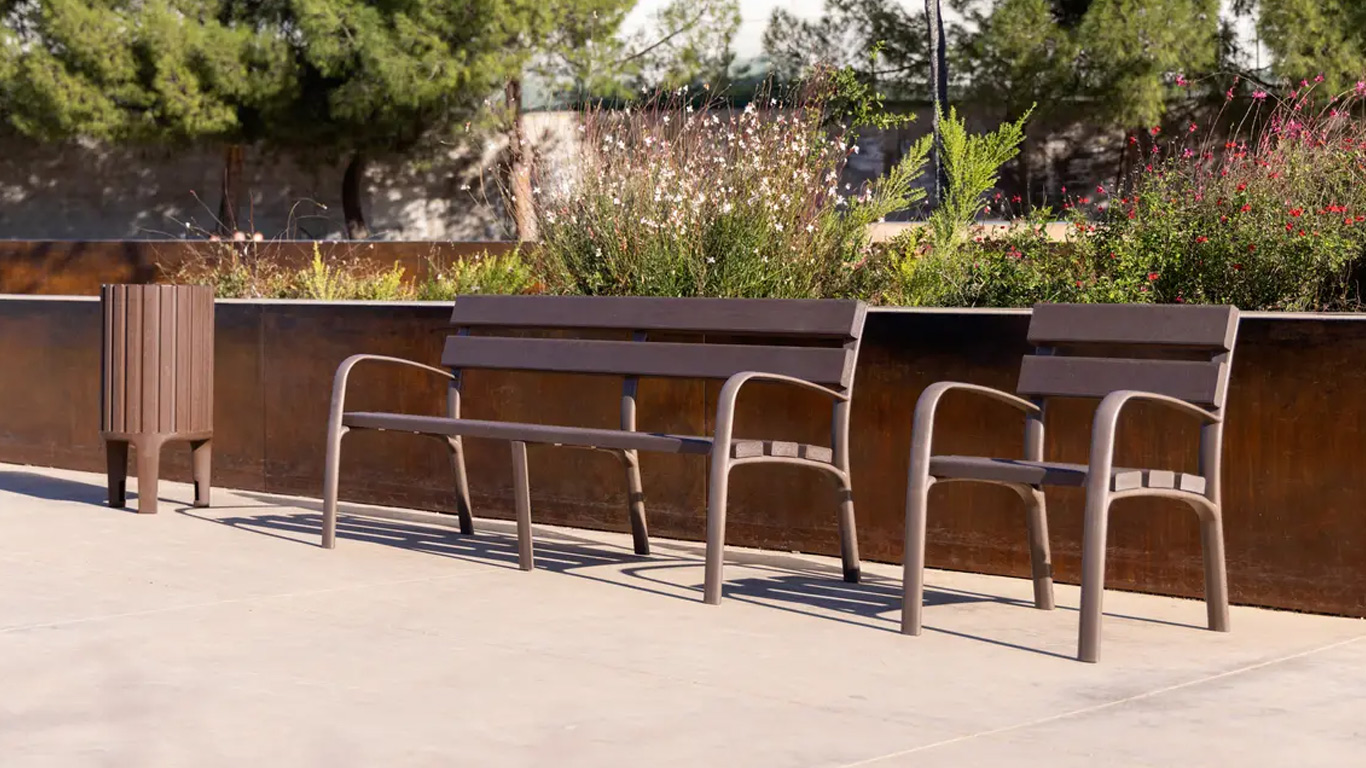
The 100% recycled plastic option is available as a chair and a bench. The legs are formed from pressure-injected thermoplastic with recycled content and the slats are manufactured from mixed recycled polymer sourced from post-consumer domestic waste and waste recovered from the industrial and agricultural sectors.
Another option in the EcoCity range that utilises recycled plastic is the litter bin. This is formed largely of high-density polyethylene (HDPE) with recycled content.
Driving circular economy thinking with Loop
A very different style of street furniture manufactured from recycled plastic is Loop from respected Danish designers Out-sider. Available from the Artform Urban division of BSFG, this is a collection of rotationally moulded polyethylene furniture, designed to add a complementary and fun approach to outdoor furniture, all designed to be recycled again at the end of their life.
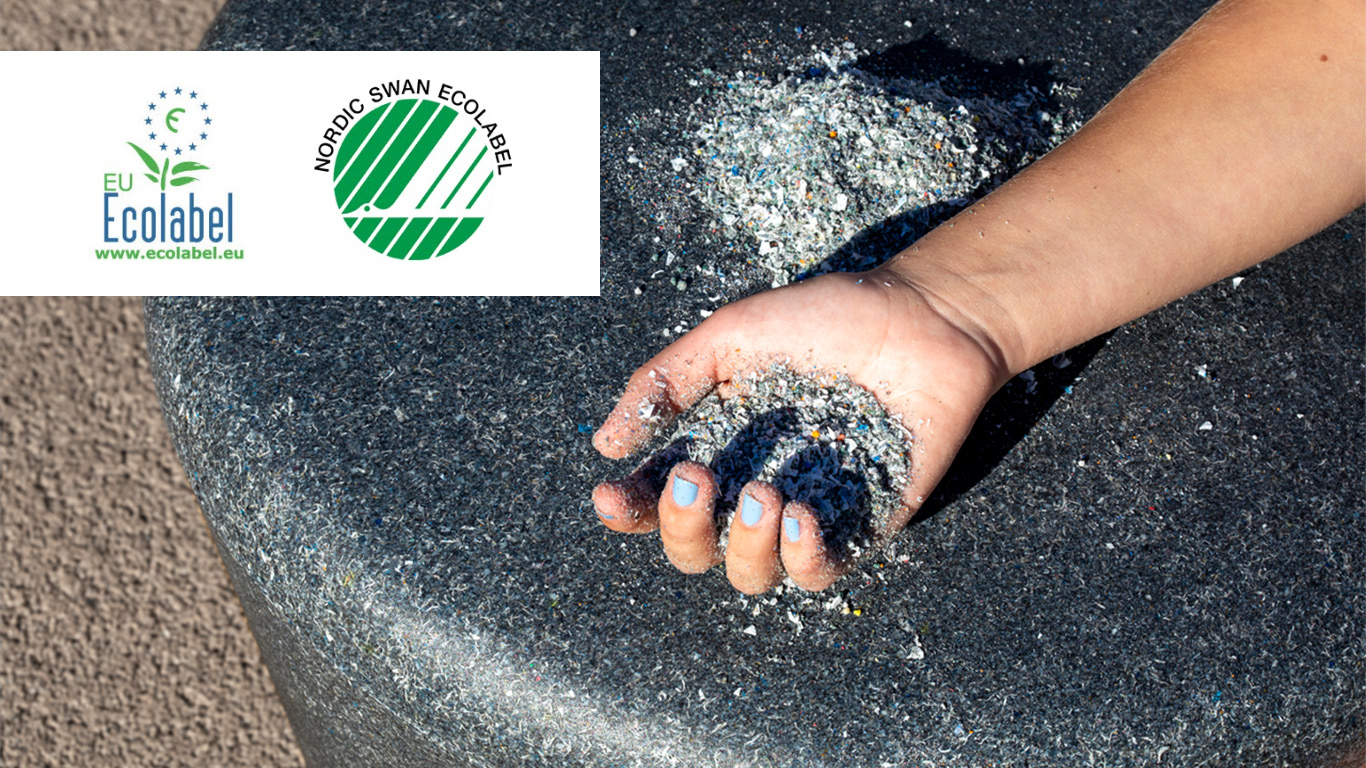
Some of the products in this range such as the Loop Recycle are manufactured using 100% recycled plastic. This product also meets the UN’s Sustainable Development Goal no. 12: Responsible consumption and production.
One of the most significant dimensions to Loop’s sustainability is that the range, which is designed for public and community spaces such as school playgrounds and play parks, is certified under the official Nordic Swan Ecolabel. This means that the production and lifecycle of Loop products have been independently assessed with the label confirming Out-sider’s aim to reduce the overall environmental impact of consumption.
Recycled plastic cycle parking solutions
It is not only seating, benches and litter bins that are available in recycled plastic – BSFG also offers cycle parking products in this material in form of Streetpod from its Cyclepods division. This offers a dual sustainability win, with products created in a resource-efficient way deployed to encourage a greener form of transport.
The black version of this high security parking system is manufactured using recycled plastic, offering a Sold Secure Diamond-rated solution, the highest level of bicycle security, and it is Secured by Design accredited as well as being officially recommended by UK Police through the ‘Police Preferred Specification’ programme.
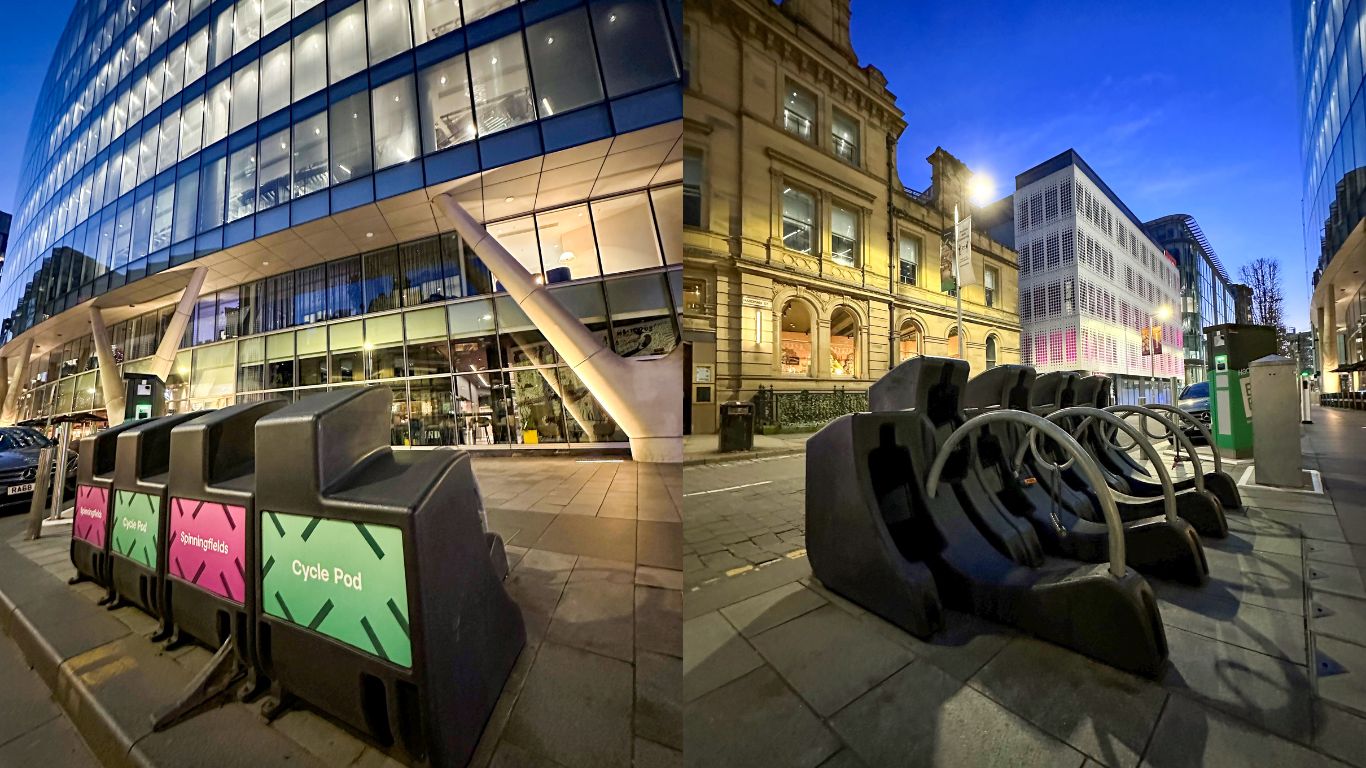
Among the projects which have benefited from the installation of recycled plastic Streetpods is Spinningfields, Manchester, where the cycle parking solution was installed within a major city centre mixed use development. The products were used in a different way for the creation of the Hammersmith Cycle Hub in London, which provides parking for 80 bikes in a facility very much aimed at encouraging cleaner and more sustainable travel to improve the local environment, air quality and people’s health.
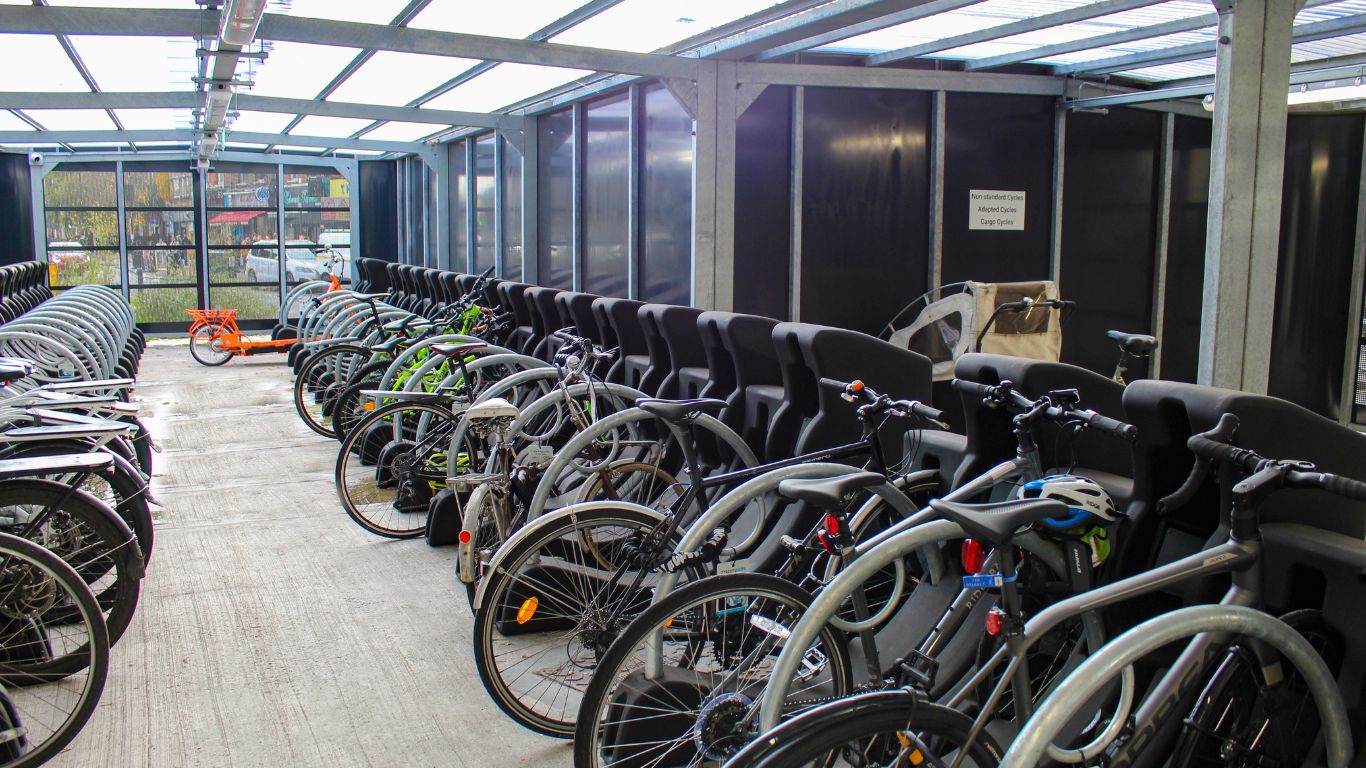
Making more sustainable timber choices
Timber continues to play an important role in creating sustainable outdoor spaces, but it is important to consider the origin of the materials used in the creation of street furniture and its whole life cycle, particularly maintenance and its recycling or disposal at the end of its service life.
BSFG can assist here through the provision of sustainable sourced timber to create a variety of products. An illustration of what can be achieved is provided through the project that BSFG’s Streetscene division was involved with at the Delamere Forest Visitor Centre. Here, a large outdoor covered seating area was created with various resting spots throughout scenic grounds, all clad in responsibly sourced Scottish Larch.
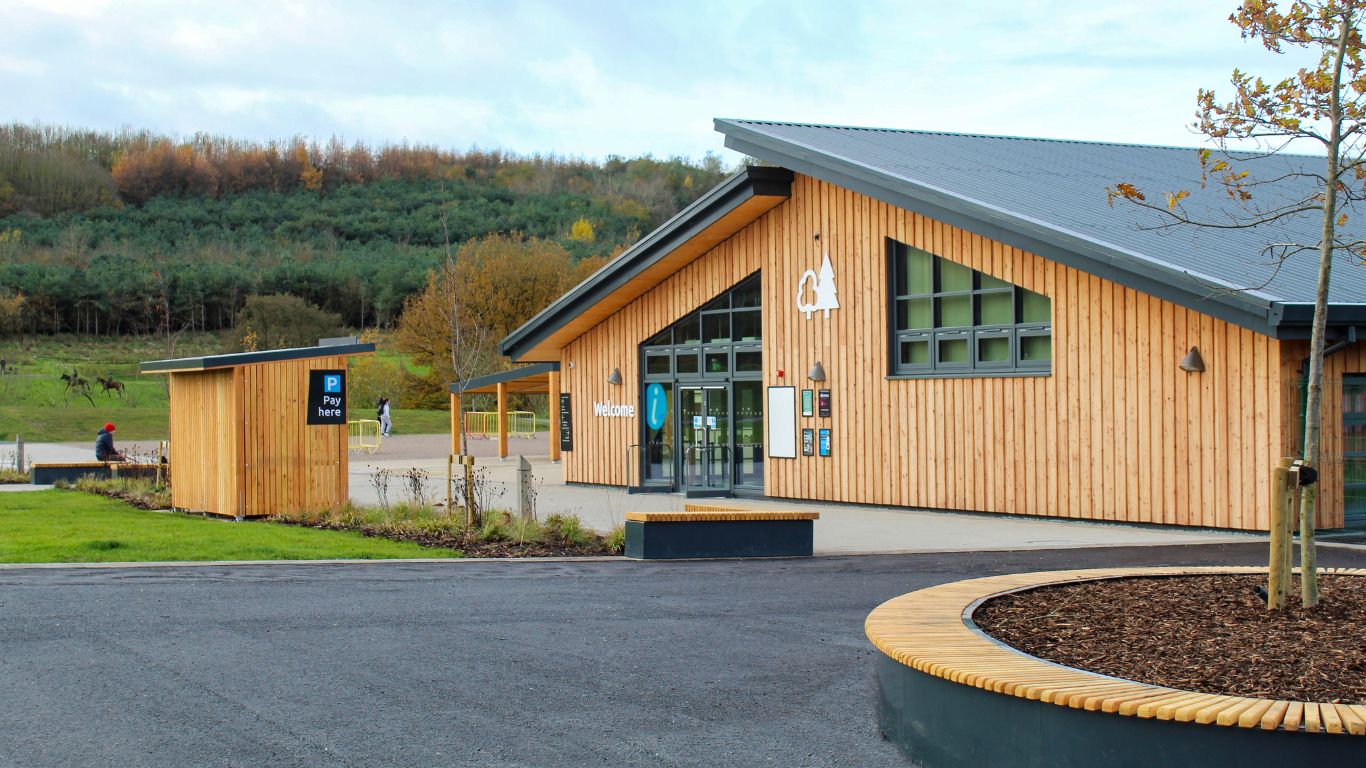
Another example of how BSFG maximises the sustainability of its timber products is in the way it manufactures street furniture with hardwood elements. The company purposely avoids treating the wood to allow it to weather to a natural finish, a way of providing important environmental benefits and avoiding expensive and regular upkeep of treating the wood with harmful chemicals. This benefits outdoor spaces by providing products with natural appeal as the BSFG Aire Park project in Leeds demonstrates.
Weathered steel as an alternative to galvanised
In projects where steel street furniture is the preference, Corten steel could be a more sustainable choice compared to galvanised steel.
This is because no paints or coatings are used during the production of Corten steel, eliminating harmful chemical use and waste, and its natural protective patina significantly extends the lifespan of products manufactured using it. As a result, material consumption is lower, making Corten steel better aligned with the circular economy given its low-maintenance, long-lasting nature and energy-efficient production.
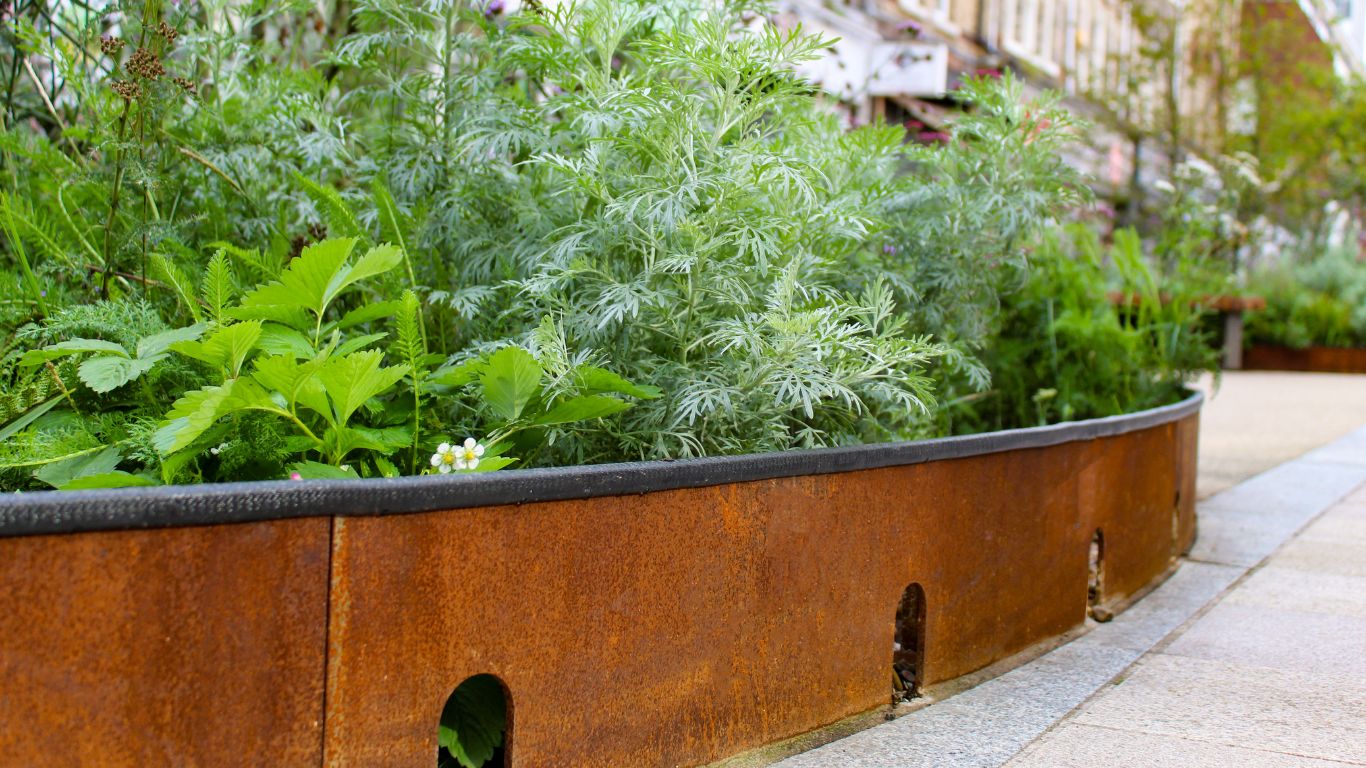
Corten steel provides an aesthetically pleasing result too as the BSFG project in Altrincham Town Centre demonstrate, where low level oval planters were installed as part of the rejuvenation of a popular shopping street. A similar style of Corten steel planter was provided by BSFG for a project to enhance the pick-up area outside Channing Junior School in north London.
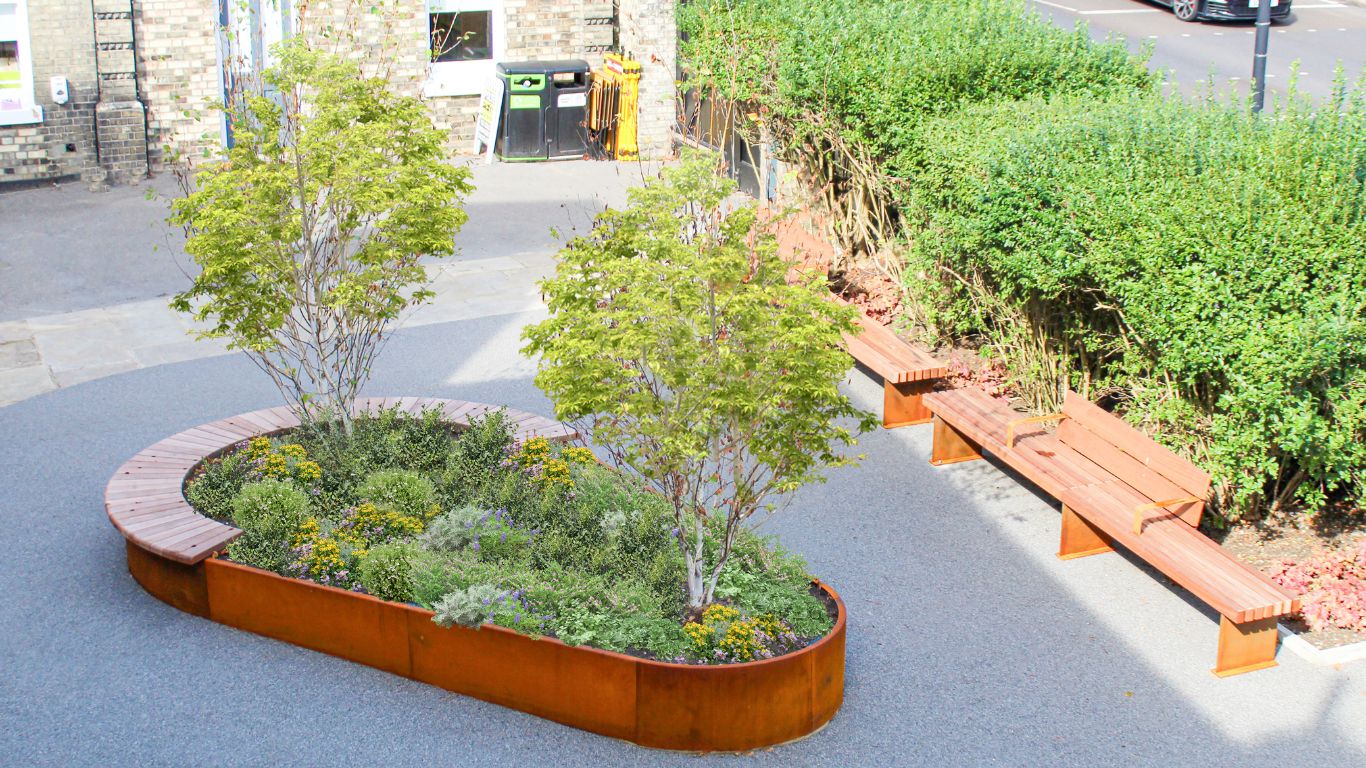
BSFG was tasked with providing a very different Corten steel solution for a project at Harper & Keele Veterinary School. Here, the product was used for the Spencer T Litter Bins in a modern tapered design and Cube bollards that can also be used as seating.
Street furniture as a retrofit solution
A final consideration when thinking about maximising sustainability in street furniture is the potential for existing installations to be upgraded to avoid the higher carbon footprint associated with full demolition, dismantling or removal.
BSFG assists here too, as a project at Southampton Central Railway Station demonstrates. In this project, BSFG were tasked with providing new Easylift Premium Two Tier Cycle Racks for installation into existing shelters after the original bike racks had deteriorated to a dangerous degree. 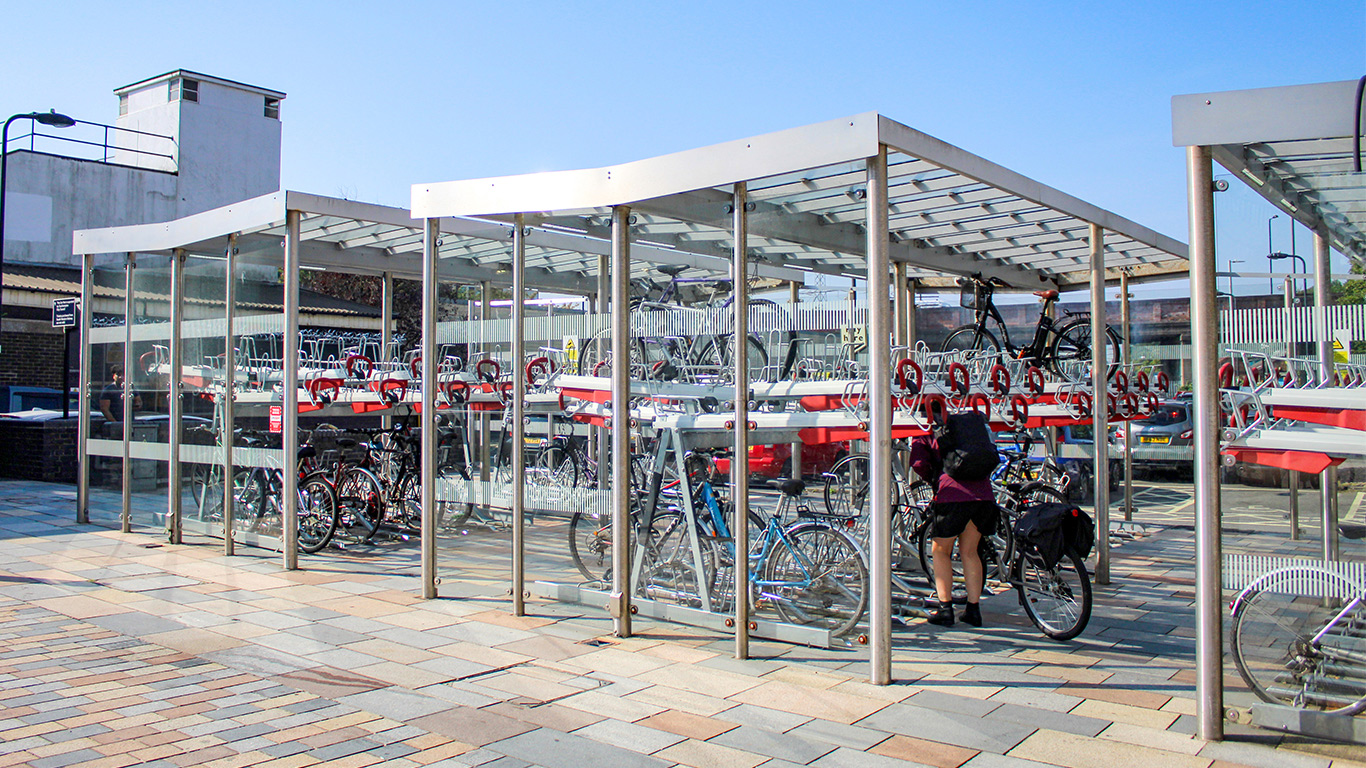
By being able to retrofit only the racks, the cycle storage facility could be significantly upgraded, both from an ease of use and durability perspective, whilst retaining the steel-framed glass shelters. The good condition of these shelters means that they still have a long service life ahead of them, so removal and recycling or disposal would have been unnecessarily costly from an environmental perspective.
To find out more about the sustainable street furniture solutions available from BSFG visit www.bsfg.co.uk